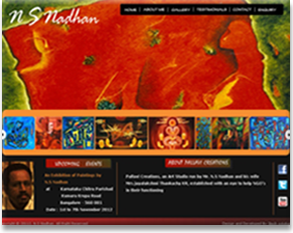Tools
Eclipse (Development)
Eclipse is a multi-language software development environment comprising a workspace and an extensible plug-in system. It is written mostly in Java. It can be used to develop applications in Java and, by means of various plug-ins, other programming languages including Ada, C, C++, COBOL, FORTRAN, Haskell, Perl, PHP, Python, R, Ruby (including Ruby on Rails framework), Scala, Clojure, Groovy, and Scheme. It can also be used to develop packages for the software Mathematical. Development environments include the Eclipse Java development tools (JDT) for Java, Eclipse CDT for C/C++ and Eclipse PDT for PHP, among others.
The Eclipse Platform uses plug-ins to provide all functionality within and on top of the runtime system, in contrast to some other applications, in which functionality is hard coded. The Eclipse Platform's runtime system is based on Equinox, an implementation of the OSGi core framework specification.
Dreamweaver (Designing)
Adobe Dreamweaver (formerly Macromedia Dreamweaver) is a proprietary web development application originally created by Macromedia. It is now developed by Adobe Systems, which acquired Macromedia in 2005. Following Adobe's acquisition of the Macromedia product suite, releases of Dreamweaver subsequent to version 8.0 have been more compliant with W3C standards. Recent versions have improved support for web technologies such as CSS, JavaScript, and various server-side scripting languages and frameworks including ASP (ASP JavaScript, ASP VBScript, ASP.NET C#, and ASP.NET VB), ColdFusion, Script let, and PHP.
Adobe Dreamweaver is available for both Mac and Windows operating systems.
Bugzilla (Testing)
Bugzilla is a Web-based general-purpose bug tracker and testing tool originally developed and used by the Mozilla project, and licensed under the Mozilla Public License.
Released as open source software by Netscape Communications in 1998, it has been adopted by a variety of organizations for use as a bug tracking system for both free and open source software and proprietary projects and products. Bugzilla is used, among others, by Mozilla Foundation, Wikimedia Foundation, WebKit, NASA, Yahoo!, GNOME, KDE, Red Hat and Novell.
























